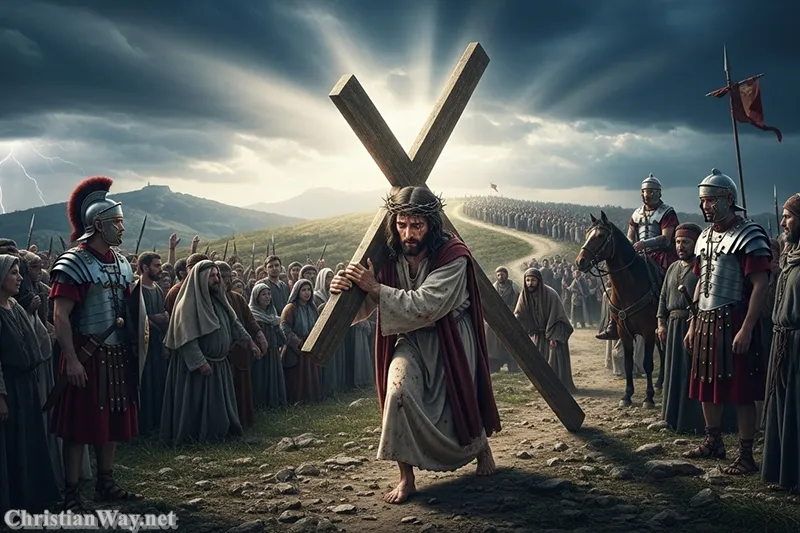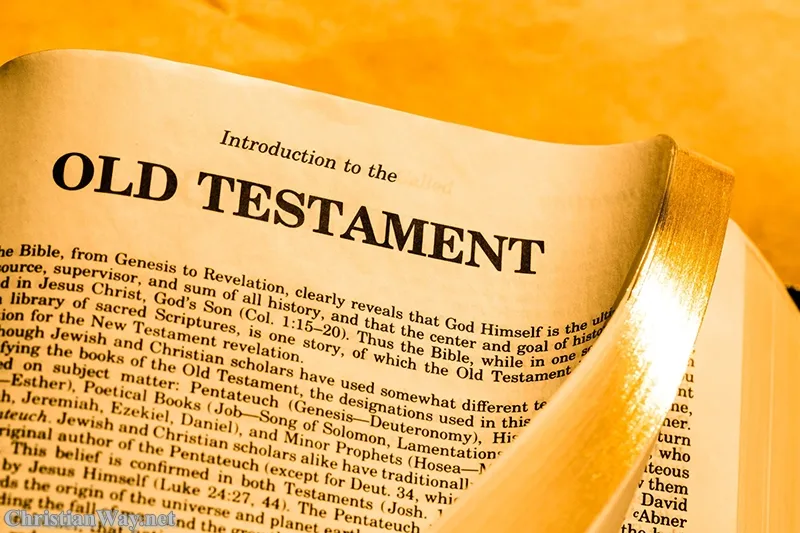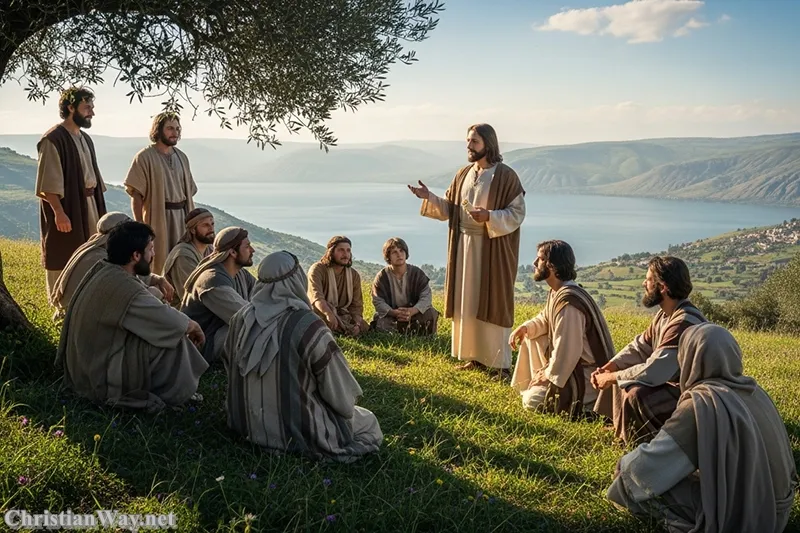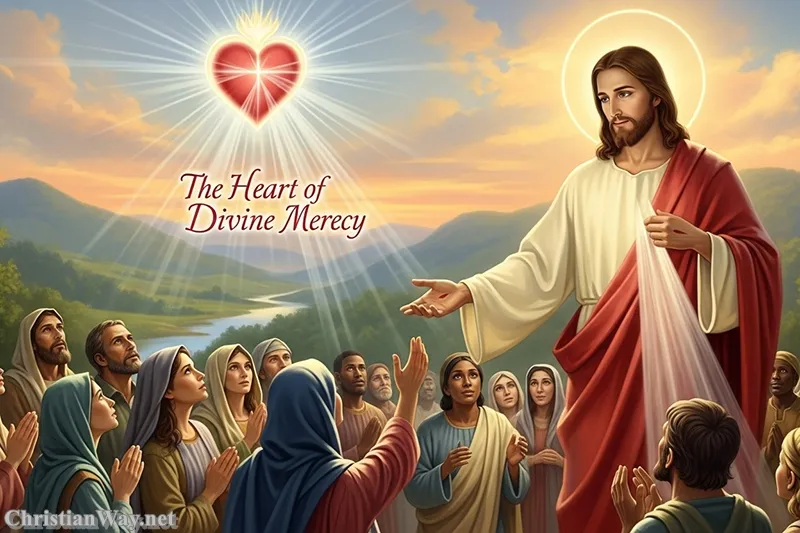Every human soul, at some point in its journey, comes to the edge of its own strength and whispers a quiet cry for help — a longing for meaning, forgiveness, and renewal. It is in that sacred place of need that we encounter the mystery of Jesus our Savior.
Dear friends in Christ, this is not merely a title among many; it is the very heartbeat of our faith. To say “Jesus is our Savior” is to proclaim that love has triumphed over sin, that life has conquered death, and that no darkness is beyond the reach of God’s redeeming light. The name “Jesus” itself means “God saves.” From the manger in Bethlehem to the Cross on Calvary, every step of His earthly life was a manifestation of that saving mission — not for a few, but for all.
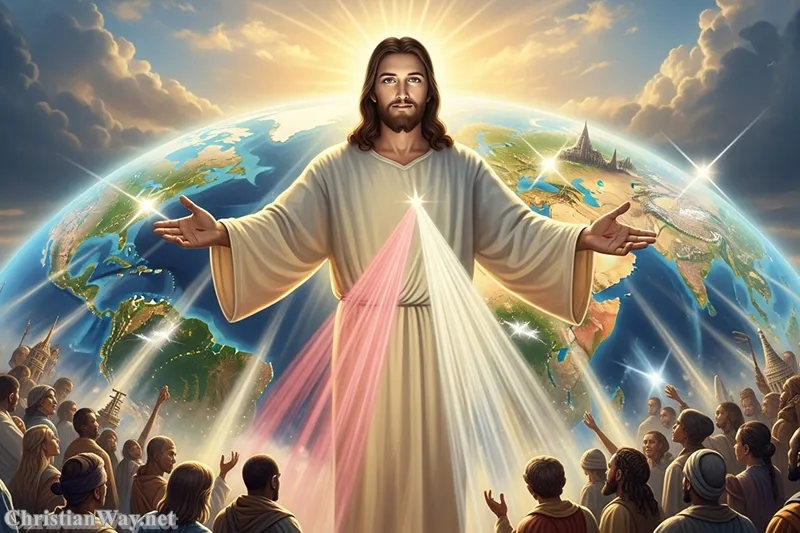
Let us journey together through the meaning of this truth — how the salvation of Jesus unfolds through His life, death, and resurrection, and how it continues even now in the heart of the believer and the life of the Church.
The Promise of a Savior: God’s Plan from the Beginning
Long before the angel spoke to Mary, long before shepherds heard the song of the heavenly host, the world was already aching for redemption. Humanity, marked by sin since the fall of Adam and Eve, had learned how heavy it is to live apart from the Creator. Yet even in that first moment of rebellion, God whispered a promise — that one day, a Savior would come to crush the serpent’s head (Genesis 3:15).
The Hope of Israel and the Longing of the Nations
Through centuries of exile, wandering, and waiting, the people of Israel held to that promise. The prophets spoke of a Messiah, a Redeemer who would bring light to those who sit in darkness. Isaiah proclaimed:
“The people who walked in darkness have seen a great light; upon those who dwelt in the land of gloom a light has shone.” (Isaiah 9:2)
This was not a political promise or a fleeting relief from hardship. It was the revelation of a deeper truth — that salvation would come not through the sword, but through sacrifice; not by power, but by love.
Jesus Christ, the Savior of the World
When the fullness of time came, as St. Paul writes, “God sent His Son, born of a woman, born under the law, to redeem those under the law.” (Galatians 4:4–5) In that humble birth at Bethlehem, God entered into human history, not as a distant deity but as one who would walk beside us, sharing our suffering and redeeming it from within.
The Saving Mission of Jesus
Jesus’ entire life was a revelation of divine mercy. His words healed the brokenhearted; His touch cleansed the leper; His forgiveness restored sinners. He did not come to condemn the world but to save it. As He Himself declared:
“The Son of Man came to seek and to save what was lost.” (Luke 19:10)
His miracles were not displays of divine power for spectacle’s sake, but signs pointing to a deeper truth: the restoration of the human person in communion with God. When Jesus raised the dead, gave sight to the blind, and forgave sins, He was restoring creation to its original harmony — to life as God intended it to be.
The Cross: The Heart of Salvation
The Paradox of the Cross
At the center of our faith stands a cross — a symbol once feared, now venerated. In the eyes of the world, it was a defeat; in the eyes of faith, it is victory. On the Cross, Jesus our Savior bore the full weight of sin and evil, not merely as a victim but as the Redeemer who freely embraced suffering out of love.
“Greater love has no one than this, that he lay down his life for his friends.” (John 15:13)
Through His passion and death, Jesus reconciled humanity with the Father. The blood that flowed from His pierced side became the river of mercy through which we are washed clean.
The Lamb of God Who Takes Away the Sin of the World
Every sacrifice of the Old Covenant pointed toward this moment. In Jesus, the true Lamb of God, the ancient promises were fulfilled. His death was not the end of a tragic story, but the beginning of new creation — the dawn of salvation for all who believe.
St. Peter writes with awe:
“You were ransomed not with perishable things like silver or gold, but with the precious blood of Christ, like that of a lamb without blemish or spot.” (1 Peter 1:18–19)
The Resurrection: Victory Over Death
The Triumph of Life
On the third day, the tomb was empty. Death could not hold Him, for He is the Lord of life. In His resurrection, Jesus our Savior revealed that sin and death no longer have the final word. What had been lost in Adam is restored in Christ.
“I am the resurrection and the life. Whoever believes in Me, though he die, yet shall he live.” (John 11:25)
This victory is not a distant memory but a living reality. Every Easter, every Mass, every act of faith renews that triumph in us. The resurrection is not only proof of God’s power — it is the promise of our own rising, the assurance that love is stronger than death.
Salvation as Relationship: Living in Christ
Not a Transaction, but Transformation
To be saved by Jesus is not simply to have our sins erased; it is to be reborn. Salvation is not a one-time event but a continual relationship — a journey of grace where Christ dwells in us through the Holy Spirit.
St. Paul beautifully describes this mystery:
“It is no longer I who live, but Christ who lives in me.” (Galatians 2:20)
When we accept Jesus our Savior into our hearts, we begin to share in His life. His Spirit transforms our desires, our thoughts, our very being. We are not merely forgiven — we are renewed, made sons and daughters of God.
The Role of Faith and Grace
Salvation is the gift of grace — a gift we receive through faith. We cannot earn it; we can only open ourselves to it. Yet true faith is never passive. It bears fruit in love, mercy, and service. As St. James reminds us, “Faith without works is dead.” (James 2:26)
Grace does not destroy our freedom; it fulfills it. The more we surrender to God’s love, the more we become truly ourselves — free to love as He loves.
The Church: The Living Sign of Salvation
The Sacraments as Channels of Grace
Jesus our Savior did not leave us orphans. He founded His Church as the visible sign of His saving presence in the world. Through the sacraments, especially Baptism and the Eucharist, the grace of salvation continues to flow into the hearts of believers.
In Baptism, we are reborn into Christ, freed from sin, and made members of His Body. In the Eucharist, we receive the very life of the Savior Himself — His Body and Blood, given for us. Each sacrament is a living encounter with the Redeemer, a continuation of the mystery of His saving love.
The Mission of the Church
To confess “Jesus is our Savior” is also to accept the call to mission. The Church exists to proclaim that good news to all nations — to be the hands and voice of Christ who still seeks the lost. Every act of mercy, every word of forgiveness, every gesture of love participates in His saving work.
The Personal Experience of Salvation
Meeting the Savior in Our Wounds
The beauty of salvation is that it meets us precisely where we are broken. Jesus does not wait for perfection; He enters our weakness. When we bring Him our sins, He brings forgiveness. When we bring Him our fear, He brings peace.
Think of the Samaritan woman at the well, or the thief on the cross — both met salvation not because they were worthy, but because they opened their hearts to the One who was passing by.
Conversion as a Lifelong Journey
To know Jesus as Savior is to walk a lifelong path of conversion — daily turning away from sin and turning toward love. It means learning to see ourselves as God sees us: beloved, redeemable, capable of holiness through His grace.
The saints remind us that holiness is not reserved for the few; it is the normal fruit of living close to the Savior. In His mercy, even our failures become places of grace, teaching us humility and dependence on His love.
The Universal Scope of Salvation
Christ the Savior of All Nations
The saving work of Jesus extends beyond boundaries of language, race, or nation. As Scripture proclaims:
“There is no other name under heaven given to men by which we must be saved.” (Acts 4:12)
His cross stands at the center of human history, reconciling heaven and earth. Every human longing — for peace, for justice, for love — finds its fulfillment in Him.
The Call to Hope
In a world wounded by division and despair, the message of Jesus our Savior remains the answer to every cry. His mercy restores what hatred destroys; His truth heals what lies have broken. Salvation is not only about eternity — it is the renewal of life here and now.
Wherever love overcomes fear, wherever forgiveness triumphs over revenge, there Christ is saving still.
Reflect and Pray
Dear friends, to know Jesus our Savior is to live in hope. His cross is the bridge between our sin and God’s mercy. His resurrection is the dawn that never ends. Each day, we are invited to step into that light — to let His saving love transform us from within.
Let us open our hearts to Him again, and make our prayer in simple faith:
Lord Jesus our Savior, You came not to condemn but to save.
Enter the depths of our hearts and heal what sin has wounded.
Teach us to trust in Your mercy, to walk in Your truth,
and to bear Your love to the world You came to redeem.May we live in the joy of Your salvation
until we see You face to face in glory.Amen.
— Fr. John Matthew, for Christian Way
